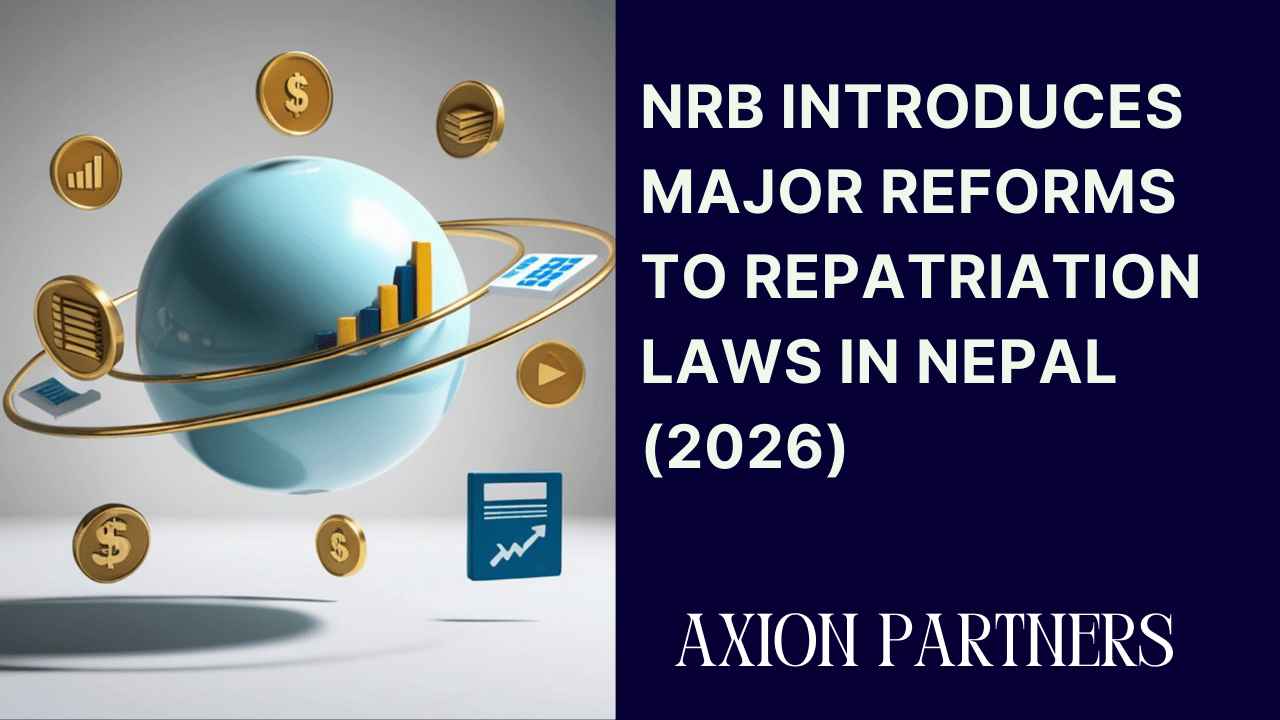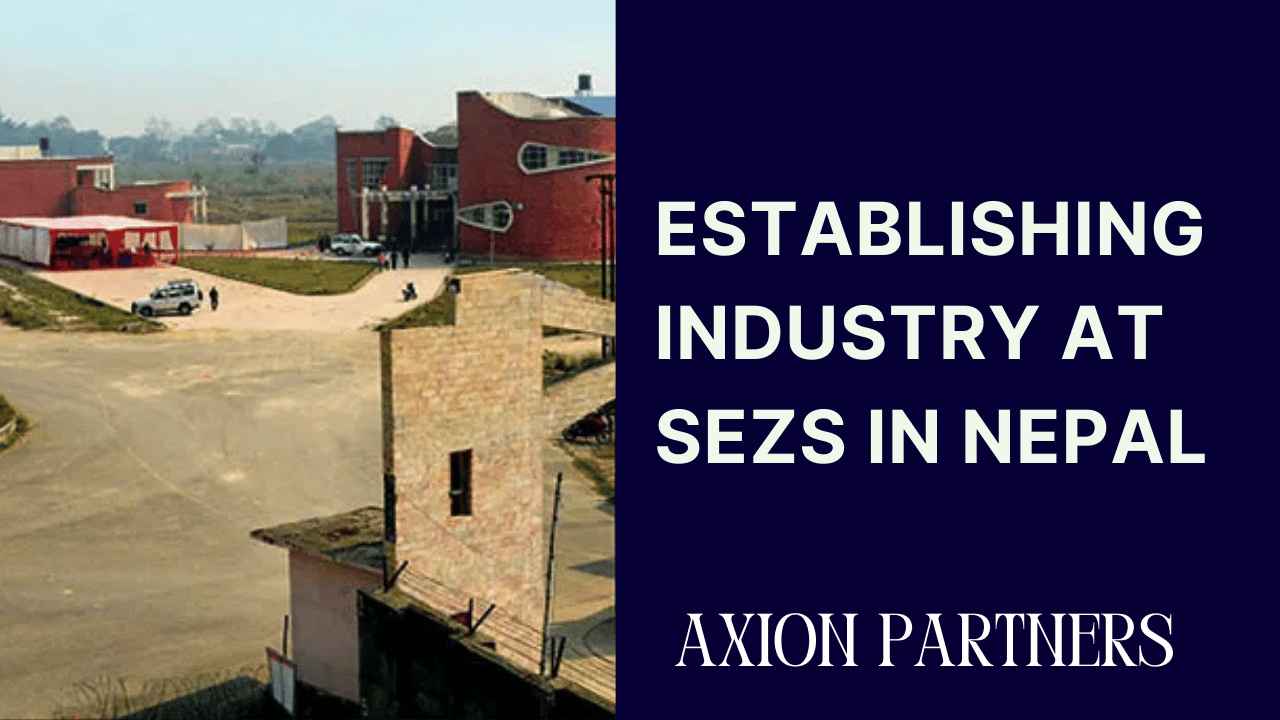Trusted & Professional Legal Services
Leading Law Firm in Nepal
Axion Partners Pvt. Ltd. is a trusted law firm in Nepal providing corporate and commercial legal services with high standards of excellence and strong strategic advisory support. We manage complex legal compliances in Nepal and deliver practical, cost effective and business focused solutions for our national & international clients.
EXCLUSIVE FOCUS ON INTERNATIONAL CLIENTS
HISTORY OF SERVING CLIENTS FROM 22+ COUNTRIES
Axion Partners leverages experience with 250+ clients across 22+ countries to deliver strategic solutions that elevate growth, optimize operations, and convert challenges into measurable wins.
VISIONARY LEGAL SOLUTIONS
TEAM OF YOUNG AND SKILLED LEGAL PROFESSIONALS
A dynamic team of young, skilled legal professionals delivering sharp expertise, agile problem-solving, and client-focused solutions designed to protect interests, maximize outcomes, and drive confident, compliant growth.
Welcome to Axion Partners!
Axion Partners is widely recognized for delivering reliable and professional legal services across Nepal. Our team consists of highly experienced corporate and business lawyers, providing trusted legal support to clients on a wide range of legal matters. It is a client-focused legal advisory firm committed to delivering practical solutions, ethical representation, and long-term value for businesses and investors.
Axion Partners specializes in Foreign Direct Investment, business incorporation and corporate structuring as a trusted commercial law firm in Nepal. We advise start-ups and established companies on corporate compliance, governance, mergers and acquisitions and legal due diligence, while also handling corporate and commercial litigation. Our services further cover foreign investment, intellectual property, contract law and the resolution of corporate disputes.
Our Experienced Nepali lawyers provide legal advice and manage all required documentation for businesses across Nepal. As a full service business law firm, Axion Partners supports clients in company law, corporate law and commercial law, delivering clear legal guidance and strong representation through experienced attorneys in Nepal.
Axion Partners is strategically located at the World Trade Center in Tripureshwor, the center of Nepal’s corporate sector, making it a trusted law company in the World Trade Center. Our team efficiently handles high value legal assignments accurately, even under strict deadlines, reflecting our strength. We are dedicated to serving premium clients by delivering refined, high quality legal services nationwide.


What We Do
Axion Partners is widely regarded as the best law firm in Nepal, offering integrated legal solutions across all major practice areas. Our teams are structured around client needs and desired outcomes, enabling us to provide practical and business focused advice as a full service law firm in Nepal. Axion Partners continues to stand out as a leading law firm in addressing today’s most complex legal challenges by combining deep legal expertise with a flexible, multidisciplinary approach.

EXCELLENCY IN SERVICE
Stay informed and confident with regular updates and clear explanations from Axion Partners, a trusted law firm Nepal, ensuring you understand every step of the legal process.
OUR CAPABILITIES
OUR AREAS OF PRACTICE
Axion Partners delivers top tier corporate legal services as a best law firm in Kathmandu. We assist businesses, investors and multinational companies in handling complex legal matters with clarity and precision. Our team includes skilled professionals and criminal law practitioners who provide practical, strategic solutions tailored to client needs, supported by experienced Nepal Lawyers.
Axion Partners specializes in corporate law, mergers and acquisitions (M&A), foreign direct investment in Nepal (FDI), taxation, commercial contracts, and corporate compliance, arbitration and litigation along with support in banking and finance, labor and employment, competition law, intellectual property, technology law, and regulatory matters, serving clients nationwide.
Clients trust Axion Partners for our proactive approach and strong focus on results as a reliable law firm in Nepal. We represent national and international businesses, startups, financial institutions, NGOs, INGOs, and government bodies. Our experienced legal team provides practical guidance that supports business growth, risk management, and efficient dispute resolution, backed by legal professionals in Kathmandu.
BANKING AND FINANCE LAWYERS
The Firm delivers corporate legal advisory, loan structuring, compliance, and FDI-related services, representing clients with reliable legal opinions and strong Nepal business law expertise as trusted legal and financial advisory services to top law firms in Nepal.
OUR COMMITMENT TO CLIENTS
Axion Partners is committed to delivering reliable, ethical, and result-driven legal services, always putting client needs first. As the best law company in Kathmandu, we focus on clear communication, practical solutions and long term client success.
OUR RANGE OF SERVICES
Axion Partners operates as a trusted Nepal law company, offering a wide range of legal services including corporate law, foreign direct investment, trademarks, regulatory compliance, and business advisory.

FOREIGN BUSINESS REGISTRATION
(FDI, BRANCH, LIAISON)

INTELLECTUAL PROPERTY
(TRADEMARK, PATENT, COPYRIGHT)

COMPANY REGISTRATION
(PRIVATE, PUBLIC, NON-PROFIT)

LEGAL LICENSING/PERMIT
(HYDROPOWER, MANPOWER, INDUSTRY, EDUCATION CONSULTANCY, TRAVEL AGENCY, FOOD INDUSTRY)

REGULATORY COMPLIANCES WITH GOVERNMENT AGENCIES
(DOI, OCR, IMMIGRATION, MINISTRY, NRB, SWC, IRD, IRO)

CORPORATE LEGAL
(FRANCHISE, CONTRACTS, NEGOTIATIONS, CROSS-BORDER ADVISORY, JOINT VENTURE)

RE-STRUCTURING AND POLICY ADVISORY
(LABOR & HR, ORGANIZATIONAL, FINANCE, ADMIN, AML)
HOW CAN YOU GET STARTED?
Contact Axion Partners today and connect with a trusted law firm for quick and reliable legal support for quick and reliable legal support.
TEAM OF LAWYERS AND CONSULTANTS
Axion Partners Pvt. Ltd. is a dedicated team of ten legal professionals committed to providing reliable and efficient support to businesses. Our lawyers maintain strong ethical standards in every matter and are experienced in liaising with government bodies, regulatory authorities, and private institutions. Axion Partners Pvt. Ltd. stands as a trusted law firm in Nepal, delivering professional, result-driven legal services to national and international clients.

BHASKAR PRASAD POKHREL

AUPSON POKHREL

ADITYA YADAV

SAFALTA BISHWAKARMA

SAPANA SHARMA

RACHANA SUBEDI

ASHISH MAHATO

ADARSH ADHIKARI
FEATURED INSIGHTS INTO NEPAL

NRB Introduces Major Reforms to Repatriation Laws in Nepal (2026)
HIGHLIGHT: Approval from the Nepal Rastra Bank is no longer mandatory for the repatriation of earnings, as the concerned local bank is now authorized to grant such approval; however, the applicable procedures continue to be governed by the Foreign Direct Investment and Technology Transfer Act, 2075 (FITTA).

Establishing Industry at SEZs in Nepal
HIGHLIGHT: SEZ industries gain tax exemptions, zero VAT, simplified approvals, capital repatriation, strike-free operations, global market access, infrastructure, incentives, and credibility. Foreign Direct Investment is also permitted.

Obtaining Business Visa in Nepal
HIGHLIGHT: Business visa in Nepal can be obtained by making a foreign investment in Nepal that is approved by the Department of Industry and issued by the Department of Immigration.






























